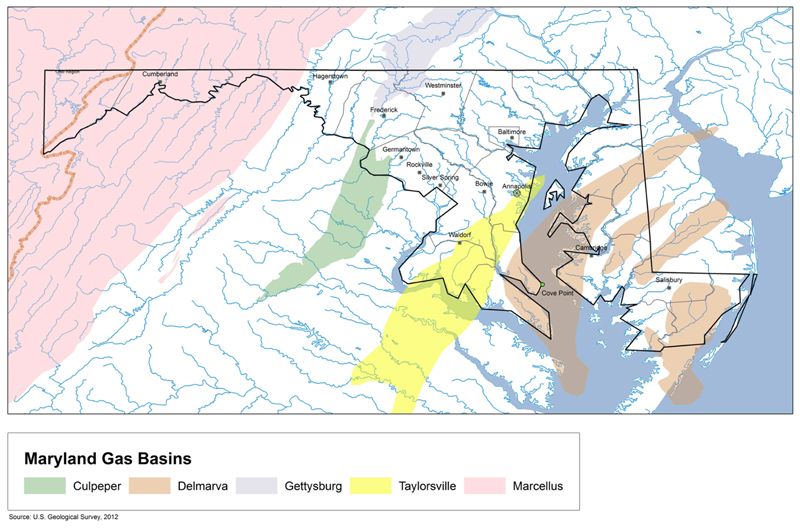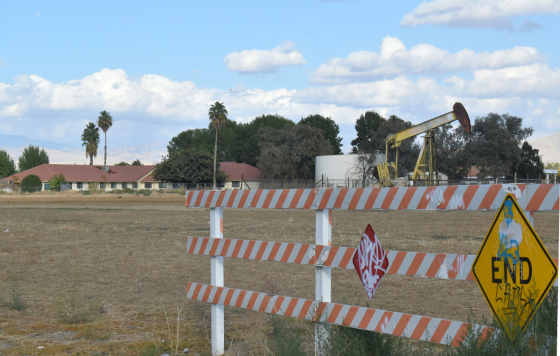
Hydraulic fracturing or fracking has become quite the hot button issue, not just in the entire country, but also especially in Maryland. This invasive and dangerous method for obtaining natural gas could soon find its way to the state. In 2015 the Maryland General Assembly passed a two-year moratorium or ban on fracking. However this temporary ban will be lifted in October 2017 and the Hogan administration seems more than eager to move forward with fracking in the state once the moratorium is lifted. Western Maryland is especially vulnerable with multiple gas basins that reach the area that oil and gas companies would love to get their hands on. Fracking there could negatively affect millions of people across the state.
Maryland recently proposed regulations for fracking in our state, but these regulations are even weaker than previous drafts. They aren't adequate to protect Marylanders from the negative impacts of fracking, and Clean Water Action will be working in the coming months to show what makes these regulations weak. Maryland must take a strong, health-protective position against fracking, because:
- The people want it.
In a recent poll of Maryland voters, 56% of them want the state to outright ban fracking. Only 6% percent of people polled thought that fracking comes with no risks. 40% percent of people polled also said they are more likely to vote for a legislator that supports a ban, and only 13% said they would be less likely.
Counties and towns in Maryland have taken it into their own hands to make sure fracking does not make it to their areas. Montgomery, Anne, and Prince George’s counties have already banned fracking, and so have the western Maryland towns of Friendsville and Mountain Lake Park. Baltimore City passed a resolution calling for a statewide ban on fracking, and will be voting on a ban of it citywide. The Frederick County Council also voted to support a statewide ban, and the Greenbelt City Council sent a letter to state legislators calling for a statewide ban.
- Local municipalities are taking measures into their own hands because the science is in.
Before even getting into the damage specifically caused by fracking, it's important to remember that we need renewable energy sources. Climate change is real and it is happening now. We need to cut our emissions now and starting new fracking operations will not help that. We need less natural gas and other fossil fuel production if we ever want a chance of mitigating the effects of climate change. The major issues with fracking are not just the burning of the natural gas, but damage caused in the process to retrieve it.
The process of fracking involves drilling deep into the earth and then shooting down a high-pressure water mixture, forcing the gas to come up. This process comes with quite a few environmental concerns. For starters, the injection process can lead to serious water pollution. An assessment from the EPA highlighted some of these concerns. The assessment showed that over 3% of wells did not have a layer of cement across a critical section of the well meant to protect a source of groundwater. The wastewater created from fracking may be the most concerning. The same assessment reported that over 2 billion gallons of wastewater are created each year, often without proper disposal or treatment. If not properly taken care of the wastewater containing many harmful chemicals can get into and negatively affect water supplies. The drilling and injection process has also been shown to cause increased risk of earthquakes. One report by the USGS showed evidence that central Oklahoma, a heavily fracked area, has been showing increasing seismic activity in recent years.
- Environmental Leadership is needed now.
Environmentally speaking, the future of America is looking pretty grim. After the 2016 election, climate change deniers and fracking advocates now control both the legislative and executive branches of government. As gloom as that might sound, individual states like Maryland can continue the fight. Despite potential new damaging federal policies, states can still do everything in their own power to lower emissions and combat climate change. Maryland needs to stand up and be a leader because that’s what the people of the state, and the entire country need.
Those in favor of fracking claim the potential of economic benefit outweighs the risk. That way of thinking is very short sighted. The risks of fracking can cause much more damage than any economic benefit can cover. We need better long-term thinking and planning if we are going to face the environmental problems of the 21st century. Maryland needs to take a stand now and make a real effort to confront these growing problems before it’s too late.


